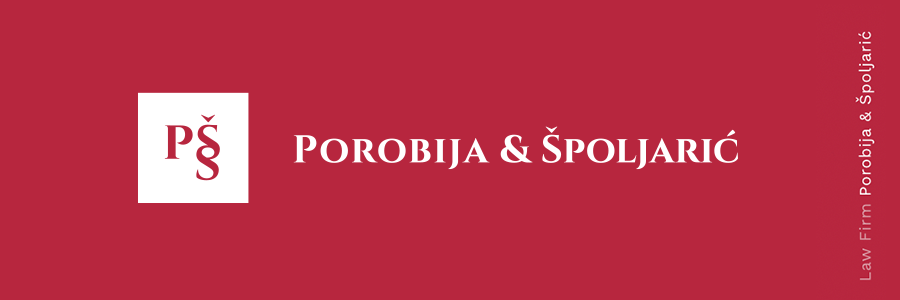On April 28, 2022, CEE Legal Matters reported that Porobija & Spoljaric had advised Croatian tourism company Mon Perin on listing its shares on the Zagreb Stock Exchange. CEE In-House Matters spoke with Massimo Piutti President of the Management Bord at Mon Perin, to learn more about the matter.
CEEIHM: To start, please tell us a bit about Mon Perin.
Piutti: Mon Perin was founded back in 2005 as a unique project aiming at growing the local community of the Istrian town Bale through sustainable business. Founders were more than 700 local residents and friends of Bale. It was formed as a Croatian limited liability company, one of a kind in Croatia at that time with such a shareholder structure. In the next 16 years, Mon Perin grew and went through two investment rounds that were based on the same principle of raising capital (multiple small investors instead of institutional investors), gathering more than 900 shareholders at one time. The project aimed at the listing of shares in the stock market was initiated in 2019 when the company transformed into a joint-stock company.
As for the business side, Mon Perin was envisioned from the start as a company that would develop local tourism, employ local people, and create shareholder value for local residents, friends, and the community. We took over two campsites on the coast of Bale and turned them into a luxury camping system that became a benchmark on the Istrian coast, all the while using financial sources that were in line with our vision. Prior to listing, and despite the pandemic, our EBITDA for 2021 was at 48% of our overall revenue, and we paid out dividends every year since 2012, with the exception of 2020 when the pandemic significantly shortened our season and temporarily lowered our revenue.
Post-listing, our goal is to reach the 5-star category for our local campsite, as well as to further widen our scope of services with luxury villas located in the town and the surrounding grounds, diffused hotels in form of multiple luxury apartments spread all around the historic town center and joint reception area, etc. Also, we are planning some other new and innovative offerings that will be presented during this and the next year.
CEEIHM: What is the raised capital from the listing intended for?
Piutti: We have now entered a HRK 300 million investment cycle, of which some will be financed directly from the capital raised in the last round, and some through smart debt financing. Said investment round should last until the end of next year. We have just finished placing the first 10 luxury mobile villas (120 square meters with private swimming pools) in the camp, along with tens of new “standard” 75-square meter mobile homes. Also, we expanded our “Paleo Park” outdoor swimming pool area and started on further improvements to be placed in 2023. Our goal is to fulfill all requirements to receive a 5-star camp category by that time. After that the plans are becoming even more ambitious, and, as we mentioned, they will be presented in the coming weeks and months.
CEEIHM: What was the most complex aspect of it from a legal perspective?
Piutti: The fact that the pandemic was still somewhat limiting our options. It was hard to have clear revenue plans when it was possible there would be further lockdowns or border closings, and 95% of our revenue is from foreign tourists. Because of that, the legal structure of both the investment round and the later listing had to be very flexible and ready to be applied in a very different combination of circumstances. Fortunately, even though we were ready for the worst scenario, it didn’t happen and many of the complex ideas our legal advisors had to create were not implemented.
CEEIHM: How was the work split between your in-house legal team and that of Porobija & Spoljaric?
Piutti: Porobija & Spoljaric did all the work, and we just enjoyed the results – and I am only partly joking. We are still a small company, and almost all of the legal work was handled by Porobija & Spoljaric teams – one Porobija & Spoljaric team worked on the investment round (it was not the classic IPO, but a private round for no more than 150 investors), and another worked on the Prospectus and other legal work required for the listing. We were mostly providing support in providing the information about us, preparing the financial and other data for their multi-disciplinary team, and drafting parts of the Prospectus that were tightly connected to current business data. It was a lot of work, especially as it was our first time listing, but we were glad to have real full-service support in Porobija & Spoljaric and their partners and subcontractors.
CEEIHM: And while on them, why did you choose Porobija & Spoljaric to assist you in the listing?
Piutti: They have been our trusted advisors and creators of our legal policies ever since 2006, participating in every major investment round. Their teams, especially one led by Marko Porobija, really understand us, the industry, and our needs. This time, they were able to provide us with support that went beyond purely legal work, as they created the entire legal strategy for the listing project, and executed it with our help (including drafting the Prospectus and managing the entire process with our market regulator, HANFA). They were in the driving seat all the way until our ticker appeared on the Zagreb Stock Market. Their way of providing service is modern, creative, and sometimes very innovative. Also, they are very client-centric and their customer service is of the highest level.

Originally reported by CEE In-House Matters.
